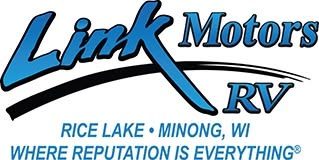Leasing Options
Buying a car is one of the largest purchases most people make in their lives outside purchasing a home. It takes careful consideration and research on your car purchase options.
Both buying and leasing, just like renting a house or purchasing a home, have their advantages. Options, payments, credit and your driving habits effect both. But what is the right option for you? Does a longer term purchase that you end up owning out right in the end work for you? Or do you trade often and hate dealing with negative equity or large down payments or not so fantastic trade values? Do you mind driving the same vehicle long term, or do you like getting a better vehicle more often? Read below to find out more!
The major points of Leasing VS Buying:
Why would a lease be right for you?
Point One: It's a new car.
The largest difference between leasing a new vehicle versus purchasing a new ride is the obvious first point, always drive a new car! With a lease, you will always have a new car and it is ALWAYS covered under full warranty. That means that other than the regular scheduled maintenance on a lease vehicle, you should never have to pay out of pocket to repair the vehicle. It also saves you the trouble of selling or trading your ride down the road, and if you decide to lease a new vehicle after your current lease is over, you generally get bonus incentives to lease your next vehicle.
Point Two: Out of pocket cost.
Lease payments work different than a purchase payment. Rather than paying your tax up front, a lease payment includes tax monthly. Lease loan terms are generally shorter than a vehicle purchase and can work in your advantage. Leases generally have low APR with these terms and the payments are based on how much the vehicle is expected to be worth after the lease.
In most cases, this means that you can get a very well equipped new vehicle for less per month than purchasing a new vehicle with less options. Think of it as renting a pre-furnished apartment in a great neighborhood for less than a decent flat downtown that you have to bring your own stuff, only for 2/3 the cost!
So, lets explain how leasing works and the steps involved in figuring our what and how you want to lease.
Step One: Pick your vehicle(s)
Know what vehicles you are interested in,know what options you NEED and what options you WANT. It is crucial that you know your must haves in your next ride. What are the major items in the car you can’t or won’t go without? This includes options like leather seating, premium rims, back up camera or maybe you just need a basic vehicle with great MPG as a short distance commuter car. Either way, know what you want before you move forward.
Step Two: How many miles do you drive a year and how will you use your next vehicle?
What are you going to be using this vehicle for? A construction site work truck or farm vehicle? Long distance daily drives to work? Cross country vacations across the US? If you answered yes to those questions, than leasing is most likely NOT for you. Did you answer no to those questions? Then awesome, a lease may work great! Read on!
Leases generally come with pre-determined mileage options set PER YEAR. Think of this in terms of minutes on a phone. You pay in advance for the “up to,” but if you go over, it costs extra. It’s better to be pro-active than reactive. It is important to know how many miles you drive per year so that you get the right mileage on the lease. Most leases start with a minimum of 10,500 miles per year and go up to around 20,000 miles per year. Keep in mind, the more miles per year, the more expensive the lease is in most cases.
Step Three: Lease Term.
How long do you want to drive your next vehicle for? Lease terms (lengths) can range from 24 to 39 months. Depending on the vehicle and estimated value of the vehicle after the lease expires, these will impact the monthly cost of the lease. In most cases, the shorter the term, the better your payment. Lease terms and mileage are a key determining factor in the next step: APR.
Step Four: Credit and lease interest rates.
How is your credit? Years ago credit score had a MAJOR impact on the interest rate of the lease payment. It still is a large factor but plays a bit lesser role in leasing now than in years past. A short term lease can be a great way to help boost your credit in the short term and take you from mediocre credit to good credit in a few years and help establish a solid credit history. This will help your interest rate on your next vehicle lease or loan.
Leasing rates are determined by many factors, including your credit history and score. Yearly mileage, vehicle value post lease and lease term (length) will all impact your payment along side your credit score. Before sitting down and deciding on a lease, make sure to carefully review all of the above information and take a look at what you want out of a vehicle. If you trade often and want a vehicle with a few extra options but have a specific budget, a lease may be right for you. In most cases, you can get a nicer ride for less per month, and always have a new ride to boot with a lease! Once you have answered all the questions above an think a lease may be for you, give us a call and we will show you your options.

